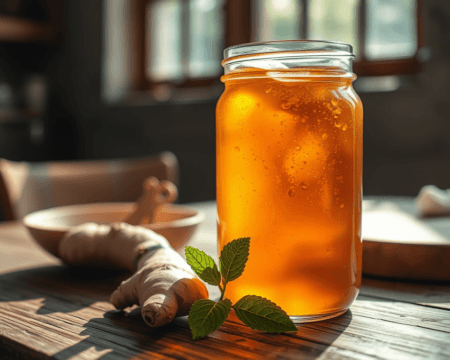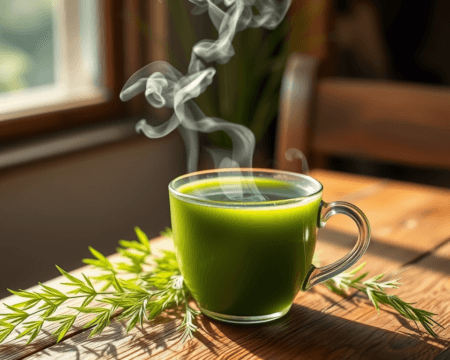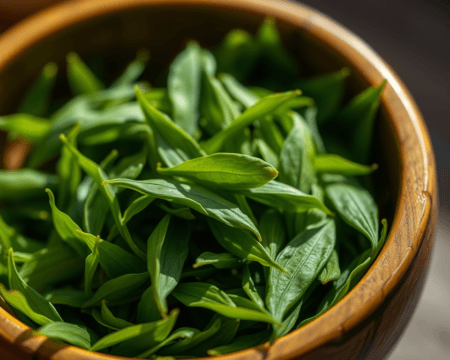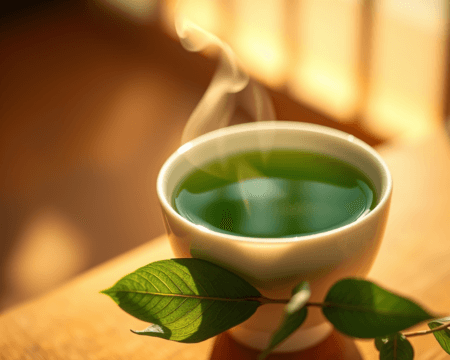Nothing gets me juiced quite like the thought of jumping into the booming world of online tea sales. If you’re here, you’re probably feeling that same rush, right? Maybe you’ve got a killer blend, a passion for the leaf, or even just an entrepreneurial itch you’re dying to scratch. But hold on—before you throw your hat in the ring, let’s talk about something critical: legal requirements. That’s right! Selling tea online isn’t just about having a nice website and a solid marketing strategy; you’ve got to navigate some crucial licensure waters, too.
So, what’s the real deal? Do you need a license to sell tea online? Grab a cup, settle in, and let’s get into all the nitty-gritty details.
Key Takeaways
- You usually need a business license to sell tea, but requirements can vary by state.
- Health and safety certifications are a must, especially if you’re selling consumables.
- Ignoring licensing requirements can lead to severe penalties and damage your reputation.
- Resources like industry associations and government websites can help you navigate requirements easily.
Introduction to Selling Tea Online
The Growing Market for Online Tea Sales
The online tea business is heating up big time! E-commerce trends show that more and more people are sipping tea—just look at the stats! The tea market growth is projected to rise substantially over the next few years, fueled by consumer demand for unique flavors, health benefits, and convenient purchases. Think about it! With a click, tea lovers can explore a myriad of options right from the comfort of their homes. If that doesn’t scream opportunity, I don’t know what does.
Benefits of Selling Tea Online
Now, let’s chat benefits—because who doesn’t love a good advantage? The low startup costs of running an online tea shop are a massive draw. With little more than a few tea samples, some solid branding, and an e-commerce platform, you’re well on your way to reaching customers all over the country. And, don’t forget the niche markets! Whether you’re after organic teas, herbal blends, or exotic flavors, there’s a customer base waiting for you. Plus, the scalability is something to scream about! Start small, build your brand, and then watch the profits roll in.
Licensing Requirements for Selling Tea Online
Overview of Licensing Necessities
So, here’s the crux: licensing essentials are not optional. You might feel that little pit in your stomach thinking about it, but trust me, being legally above board is crucial. Fast-forward past the paperwork. You need to register your business to ensure compliance with local laws and regulations. If you skip out on the permit requirements, you could find yourself facing major troubles down the road.
State-Specific Licensing Requirements
Here’s where it gets a little tricky: state regulations. Not every state plays by the same rules. In California, for instance, tea sellers need to be aware of stringent health department guidelines and local business licenses. Meanwhile, if you’re in New York, you might need a different set of permits. There’s a licensing map out there to guide you, but I strongly suggest checking your local government website for specifics—sometimes, the devil really is in those details!
Types of Licenses You May Need
Retail Licenses
Alright, let’s tackle the types of licenses you might need to get your tea business off the ground. First up: retail licenses. If you want to legally sell your tea, you’ll need a sales tax permit or a retail sales license. This isn’t just for kicks; it’ll keep you compliant with tax laws and prevent your business from getting shut down. It also gives you that street cred—customers want to know they’re buying from legit sellers.
Health and Safety Certifications
Next up: health and safety certifications. Since you’re dealing with consumables, you’ve gotta play it safe. Health department regulations vary, but you’ll typically need to go through inspections and ensure your products meet food safety standards. That’s right—if you’re selling loose leaf or pre-packaged teas, be prepared to put your product through the hoops. Consider getting an organic certification if you’re aiming toward ethically sourced or health-conscious consumers; it could elevate your brand tremendously.
Import Licenses (if applicable)
Now, if you’re planning to bring in exotic teas from overseas, buckle up—you’re gonna need import licenses. When you start sourcing tea from places like China or India, get familiar with customs compliance. U.S. import regulations can be a maze, but not understanding them can cost you in fines or, worse, a big shipment stuck at the port, which is just a headache you don’t need.
Risks of Selling Tea Without Proper Licensing
Penalties and Legal Consequences
Let’s get real here. Ignoring these legal requirements isn’t just a minor hiccup; it can turn into a full-blown disaster. Fines, legal action, and potentially shutting down your business? Yup, that’s the ugly truth. You might think you’re flying under the radar, but trust me, it’s a gamble you don’t wanna take.
Impact on Your Business Reputation
Imagine launching your dream tea business only to have it tarnished by a licensing mishap. Ouch! Your brand’s reputation can take a massive hit if customers think you’re operating in the shadows. In this world, trustworthiness is key! A licensing blunder can ruin your business integrity—not just with customers but within the industry, too. Get the paperwork right, and your customers will know they’re sipping from a reputable seller.
Resources for Navigating Licensing Requirements
Official Government Resources
If you’re feeling overwhelmed, don’t sweat it! Official government resources are at your fingertips. Websites like the Small Business Administration (SBA) or your state’s business portal can help you navigate this legal jungle. They provide a host of information, including official guidelines and steps for registering your tea business.
Support from Tea Industry Associations
On top of that, you’ve got tea industry associations ready to back you up. Joining groups such as the Tea Association of the USA can connect you with resources and even networking opportunities. This isn’t just fluffy stuff; you’ll find valuable insights about industry standards and potential certification support.
Testimonials from Successful Online Tea Sellers
Lastly, nothing beats learning from those who’ve been in the trenches. Seek out success stories from other online tea sellers—listen to their journeys, uncover the challenges they faced, and see how they overcame them. You’ll find nuggets of wisdom that can help steer you clear of potential pitfalls while starting your online tea empire.
There you have it! Selling tea online can be a sweet venture, but keep your eyes on the legality side to avoid stir-ups that could sour your success. With proper licensing in place, you’re ready to turn this dream into a thriving reality!
Frequently Asked Questions
What types of licenses do I need to sell tea?
To sell tea, you typically need a general business license, and possibly a food service license, depending on your location. Additionally, some states may require specific permits for selling consumables, so it’s essential to check local regulations.
How can I ensure my tea business meets health and safety standards?
You should familiarize yourself with the health and safety regulations for food sellers in your area. This may involve obtaining certifications from local health departments and following guidelines regarding storage, packaging, and selling of consumables to ensure safety.
What are the consequences of selling tea without a license?
Selling tea without the required licenses can lead to severe penalties, including fines and the potential closure of your business. It can also damage your reputation, making it harder to gain customer trust in the future.
Are there resources available to help me navigate food selling permits?
Yes, various resources are available, including industry associations, local small business development centers, and official government websites. These platforms provide useful information on the licensing process and can guide you through specific requirements in your state.
How do I find my local health department’s requirements for selling tea?
You can find local health department requirements by visiting your city or county’s official website. This site typically includes details on permits, inspections, and health regulations relevant to food sales.
Can I sell tea online without any licenses?
Even if selling tea online, you typically need a business license and may need health and safety certifications. Online sales are still subject to local and federal regulations, so ensure you comply to avoid penalties.
Is it necessary to label my tea products?
Yes, proper labeling is crucial when selling tea, especially if it contains any allergens or specific ingredients. Labels help inform customers about what they’re purchasing and build trust in your brand while complying with legal requirements.
What should I do if I’m unsure about the licensing requirements?
If uncertain, contact your local business licensing office or health department. They can provide clarity on what’s required for your specific business model, including any necessary permits or inspections.
Can I operate a tea business from home?
Operating a tea business from home is possible, but you must check local zoning laws and obtain the necessary licenses. Many areas have regulations regarding home-based food businesses, so ensure your home kitchen meets health standards.
What are some common mistakes to avoid when starting a tea business?
Common mistakes include neglecting to research licensing requirements, failing to prioritize health and safety compliance, and not having a clear business plan. Avoid these to build a successful and reputable tea business.










